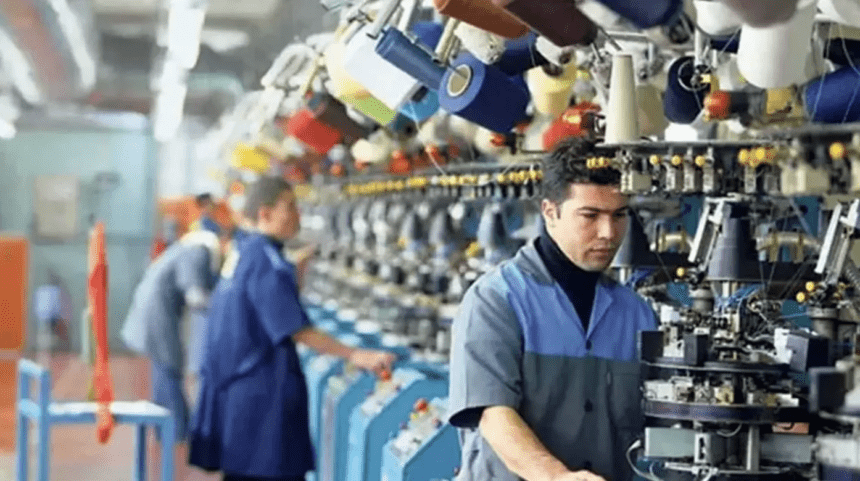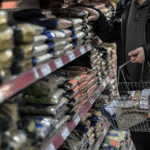Weak external demand conditions coupled with the tightening in monetary policy increased supply-side pressures in the real sector. While orders fell, the slowdown in production became more pronounced.
The tightening of monetary policy as part of the fight against inflation, coupled with the blood loss in exports, has brought the recession to the surface. While market data show red alarms in new orders, exports, production and employment, the decline in company openings reveals that the appetite for doing business has been lost.
The real sector, which has been stepping on the brakes due to low demand-high prices abroad and tight monetary policies at home, is moving backwards. The fact that the Manufacturing PMI has been below the threshold value of 50 for the last 5 months and the Export Climate Index for the last 3 months clearly reveals the deterioration in market conditions, while the capacity utilization rate in the manufacturing industry is also at a low rhythm.
No appetite for doing business
The 5.7% decrease in the number of companies established in 10 months of the year compared to the same period of the previous year and the 3.3% increase in the number of companies closed reveal that the appetite for doing business in the market has also declined. It is possible to see this in TOBB’s established-closed company statistics announced every month. While the number of companies established in 10 months of 2023 decreased by 5.7 percent compared to the same period last year, the number of real person commercial enterprises established decreased by 24.2 percent. In this period, the number of closed companies increased by 3.3 percent, while the number of closed real person commercial enterprises increased by 13 percent.
Orders fall, production slows
ISO Turkey Manufacturing PMI, which closely measures the pulse of the market, decreased by 1.2 points in November compared to the previous month and realized as 47.2. The index remained below the threshold value of 50.0 for the fifth consecutive month, indicating a noticeable slowdown in operating conditions, and the slowdown was realized at the most significant level of the last year. “Stagnant market conditions both at home and abroad led new orders to continue to lose momentum in the middle of the last quarter, thus recording the sharpest slowdown since November 2022,” the report said. According to the PMI report, in addition to purchasing activities, firms’ input and final product stocks decreased in November. While 7 out of 10 sectors saw a decline in production, an increase was seen in land and marine vehicles, food products and non-metallic mineral products.
Industrial production in monthly decline since July
Looking at the Industrial Production Index released by TurkStat, it is seen that industrial production increased by 4% year-on-year in September, while the monthly declines in the last 3 months give a negative signal. On a monthly basis, the index fell by 0.4% in July, 0.8% in August and 0.1% in September.
Exports remain stagnant
Just like the ISO Turkey Manufacturing PMI, the ISO Export Climate Index is also sounding a red alarm. Falling to 48.5 in October, the index remained below the 50.0 threshold for the third consecutive month, signaling the most significant deterioration in external demand conditions since the beginning of the year. As in recent months, the weakness was again largely due to a slowdown in the main export markets in Europe. According to TIM figures, exports remained flat in the January-November period, up 0.7% to $255.8 billion.
Retail sales slowed
One of the measures that best signals the recession is the Retail Sales Indices released by TurkStat… Retail sales volume at constant prices increased by 13.8% year-on-year in September. In the same month, food, beverage and tobacco sales increased by 13.8%, non-food sales (excluding automotive fuel) increased by 18.6% and automotive fuel sales decreased by 1.5%. What is noteworthy here is that the annual rate of increase has started to slow down… While the lowest annual rate of increase since December 2022 was 21.41% and the highest 31.7%, the annual rate of increase in the index has fallen below 20% since the last two months.
Consumer hesitations curb the rate of decline
Stating that all market data show a slowdown and the statements coming from the field support this, Prof. Dr. Erhan Aslanoglu, author of the EKONOMI daily newspaper and Vice Rector of Piri Reis University, said, “In fact, an expected situation is starting to take place.” Pointing out that with the tightening of the policy rate, loan interest rates have also increased considerably, which severely restricts the supply side of the economy, Aslanoglu said that it also ‘naturally’ reduces the appetite for investment and growth. At the same time, as the increase in deposit interest rates started to turn to the real side, the consumption side was also curtailed, which reduced demand, Aslanoglu said, “But I think deposit interest rates have not yet reached the point where they will reduce demand. The consumer is experiencing a hesitation. And I think it is these tides that prevent the market from going down further; the reactions of the consumer to campaigns and promotions…” Pointing out that the slowdown will deepen in the coming period due to decreasing demand, “No one wants the economy to slow down, but it is necessary to fight inflation. In order for us to move to more stable and sustainable growth in the medium term, we must be able to cross this threshold” Aslanoglu said.
FINANCE, REAL SECTOR AND PUBLIC SECTOR SHOULD WORK IN COORDINATION
Recalling the contraction of the Turkish economy during the disinflation process in 2002 and its subsequent growth until 2007, Aslanoğlu said: “We can succeed in crossing such a threshold again, but reforms are needed… Monetary policy alone will not be enough; many economic and non-economic reforms are needed. In this process, fiscal policy needs to quickly turn towards savings. There are many steps to be taken, but this recession is inevitable. In this sense, it is important for companies to pay attention to their liquidity and make their own preparations, taking into account that demand conditions will slow down. It is also important for the economic administration to provide maximum support to companies that are struggling with this inflationary process, which is not caused by them. For this to happen, the public sector also needs to save a lot. In times of recession and contraction, some companies in the real sector may be expected to quit or increase their employment outflows. Finance, the real sector and the economic administration need to work in a very coordinated manner so that the struggling companies do not negatively affect the general economy through contagion.”
WHAT DOES THE BUSINESS WORLD SAY?
WE HAVE NO CHANCE TO COMPETE IN LOW-TECH JOBS
Jak Eskinazi, Coordinator President of the Aegean Exporters’ Associations, said that things are getting worse especially in low and medium-low technology sectors, and that the market shares lost to Far Eastern competitors and cheaper countries are increasing. Explaining that Turkey has no chance to compete in human labor-intensive manufacturing, Eskinazi said, “The situation is not bad in medium-high and high-tech jobs. New investments need to be made in these areas. Companies should turn to high value-added and high productivity jobs. This is essential to overcome the recession.” Pointing out that the biggest problem in front of businesses is financing, Eskinazi said, “There are problems with demand both inside and outside. Our biggest problem is inflation. We will be patient for 1-1.5 years to eliminate this inflation, otherwise we cannot do anything without reducing inflation to single digits.”
2024 WILL NOT BE AN EASIER YEAR THAN 2023
Erkan Ozkan, Chairman of the Board of Directors of Istanbul Furniture, Paper and Forestry Products Exporters’ Association, said that the steps that need to be taken to reduce inflation are currently being taken domestically, which slows down business. Pointing out that the recession continues abroad as well, Ozkan noted that although the financing taps have been opened, the restriction of its use due to its high cost has put a strain on the real sector. “At the moment, there is no possibility for the industrialist to earn money with 10-20 percent and get a loan with 50 percent,” Ozkan said, noting that the profitability of the companies has melted too much, that all companies that cannot protect their working capital during this recession are at risk, and that the situation of companies with a large number of employees is also critical. Underlining that business in the furniture sector has fallen by around 20 percent this year, Özkan said, “2024 will not be an easier year than 2023.”
EVEN CLOSE PARTNERS NOW FIND OUR PRICES HIGH
Alican Duran, President of the Association of Cardboard Packaging Industrialists (KASAD), said that the companies in the packaging sector, except those working for pharmaceutical companies, are in decline both in the domestic market and in exports, and said, “Speaking in terms of tonnage, we are 7-8 percent below last year this year. Considering that raw material prices have come down, this decline is even more in terms of turnover.” Explaining that Turkey is too expensive for Europe not only in packaging but also in many other sectors, Duran said, “Our main problem right now is that our prices in Euros and dollars make us uncompetitive in exports… Even if our close partners now find Turkey, where they used to find very reasonable prices, expensive. Without this price bubble corrected in many sectors, business can’t start again.” Stating that banks also have a duty to keep healthy and promising companies alive in this period, Duran said, “Banks should be ‘selective’ rather than ‘guarantor’. Giving money to companies that do not need money is not a model. The main policy should be to give money to companies that can survive and have a future when money is given.”










